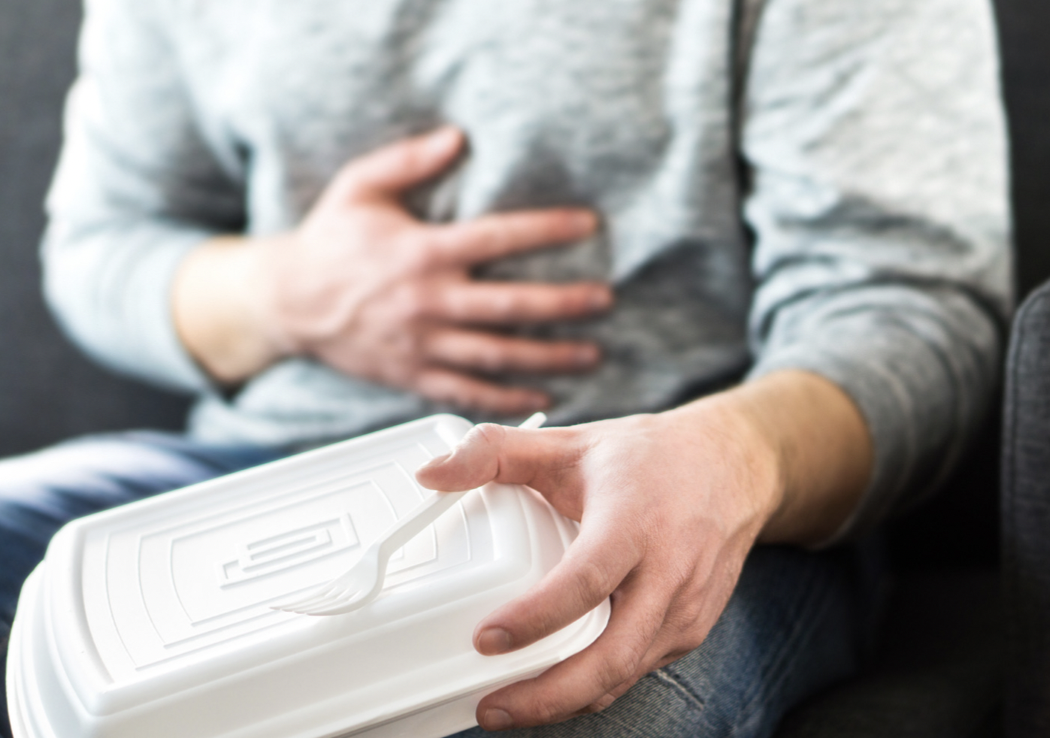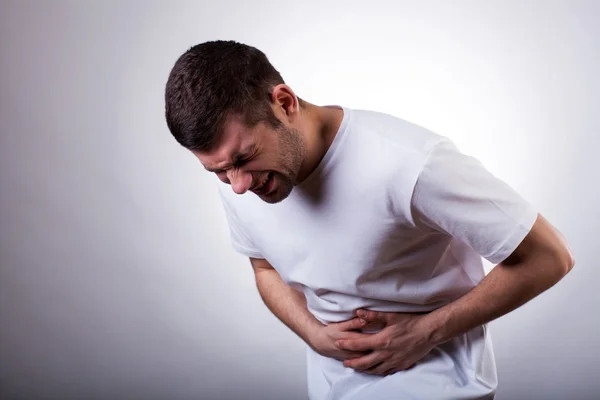Pengertian
Diare adalah meningkatnya frekuensi buang air besar menjadi tiga kali atau lebih dalam sehari disertai dengan perubahan konsistensi feses menjadi lebih cair. Diare akibat obat adalah diare yang terjadi ketika mengonsumsi obat-obatan tertentu. Tingginya frekuensi diare akibat obat disebabkan karena usus merupakan tempat penyerapan pertama dari obat yang diminum. Banyak obat yang memang memiliki efek samping mengganggu penyerapan cairan di saluran cerna, terutama di usus halus dan usus besar. Efek samping yang umum dijumpai antara lain adalah rasa panas di dada, mual, muntah, diare, dan konstipasi.
Berdasarkan waktu terjadinya, diare dapat dibedakan menjadi dua yaitu diare akut, yang biasanya muncul beberapa hari setelah konsumsi obat, dan diare kronik yang dapat berlangsung lebih dari 2 minggu setelah konsumsi obat.
Penyebab
Lebih dari 700 obat diketahui dapat menyebabkan diare. Namun, mekanisme yang mendasari terjadinya diare oleh obat tersebut tidak selalu diketahui. Obat-obatan mungkin dapat memengaruhi sistem regulasi dari saluran cerna sehingga berujung pada diare. Pengaruh ini dapat disebabkan oleh efek kerja obat itu sendiri, reaksi alergi tubuh terhadap obat tersebut, ataupun gangguan langsung pada saluran cerna akibat obat tersebut.
Beberapa mekanisme di bawah ini diketahui dapat mendasari terjadinya diare akibat obat dan dapat terjadi bersamaan, seperti:
- Konsumsi larutan yang sulit dicerna atau memiliki konsentrasi zat terlarut yang tinggi. Contohnya, infus manitol, cairan pemanis sorbitol, obat pencahar laktulosa, atau senyawa magnesium yang terkandung dalam obat pencahar atau obat antasida untuk mengatasi gejala lambung.
- Meningkatnya pengeluaran cairan dan ion pada saluran cerna.
- Gangguan penyerapan cairan pada sel saluran cerna.
- Gangguan pergerakan saluran cerna.
- Pengeluaran darah, lendir, dan protein ke dalam saluran cerna akibat adanya peradangan dan luka pada saluran cerna.
- Gangguan penyerapan dan metabolisme lemak dan karbohidrat.
Beberapa obat yang sering menyebabkan diare:
- Antibiotik: penisilin, sefalosporin, klindamisin, kuinolon, makrolid, dan lain-lain. Normalnya, usus memiliki banyak bakteria yang menjaga keseimbangan flora usus. Penggunaan antibiotik dapat membunuh bakteri tersebut sehingga memungkinkan bakteri lain tumbuh secara berlebihan. Contoh bakteri yang sering menyebabkan diare akibat penggunaan antibiotik adalah Clostridium difficile. Diare yang disebabkan oleh antibiotik biasanya timbul tidak lama setelah konsumsi obat, bersifat ringan, dan kebanyakan akan mereda setelah penghentian obat.
- Laksatif atau obat untuk konstipasi (bekerja dengan menyerap air ke dalam usus atau dengan menyebabkan kontraksi usus).
- Obat untuk penyakit lambung: antasida yang mengandung magnesium atau kalsium, lansoprazole, esomeprazole, omeprazole, pantoprazole, rabeprazole.
- Antidepresan golongan SSRI (selective serotonin re-uptake inhibitor): sitalopram, esitalopram, fluoksetin, sertralin, paroksetin.
- Obat diabetes mellitus: akarbose, metformin, liraglutide. Akarbose sendiri mengganggu penyerapan glukosa pada saluran cerna. Glukosa yang tidak terserap tersebut akan menimbulkan diare.
- Obat kanker: metotreksat, siklofosfamid, doxorubisin, dll. Obat ini sering mengganggu proses pencernaan makanan dan mengganggu kerja usus halus sehingga menyebabkan diare.
- Obat antihipertensi seperti kaptropril, lisinopril.
- Obat kolinergik: neostigmin, piridostigmin, edrofonium, rivastigmin, donepezil
- Obat penekan sistem imun: mikofenolat mofetil (sering digunakan pada pasien transplantasi), takrolimus, siklosporin, kortikosteroid
- Obat anti radang (obat anti inflamasi non steroid / OAINS) seperti asam mefenamat, natrium diklofenak, piroxicam, meloxicam, dan lain-lain.
- Obat-obatan lainnya, seperti: Kolkisin (untuk penyakit gout), Diacerein, Obat antiretrovirus, Misoprostol, Cisapride, Digoksin. Metoklopramid, Orlistat, serta Sildenafil.
Faktor Risiko
Diare akibat obat dapat terjadi pada semua orang yang mengkonsumsi obat. Namun, seseorang lebih berisiko untuk menderita diare akibat obat jika:
- Pernah mengalami diare akibat obat sebelumnya.
- Mengonsumsi obat dalam jangka waktu panjang.
- Mengonsumsi lebih dari satu obat. Jika Anda mengkonsumsi banyak obat, maka penentuan obat mana yang menjadi penyebab diare pun menjadi lebih sulit.
Gejala
- Meningkatnya frekuensi BAB menjadi tiga kali atau lebih dalam sehari, atau lebih dari 250 gram feses dalam sehari.
- Perubahan konsistensi feses menjadi lebih cair.
- Pada diare akibat antibiotik dimana terdapat pertumbuhan difficile, diare dapat lebih berat dan disertai darah dan lendir. Selain itu, gejala lain yang dapat ditemukan adalah demam ringan, mual, dan penurunan nafsu makan.
- Diare disertai lemak.
- Kram perut.
- Dehidrasi akibat kurang cairan dengan tanda dehidrasi yaitu haus, pucat, dan bibir kering. Tanda dehidrasi berat yaitu mulut yang sangat kering, haus berlebihan, berkurangnya frekuensi atau jumlah urin, perasaan melayang atau pusing, lemas, dan penurunan kesadaran.
- Berat badan turun akibat hilangnya cairan dan nutrisi.
Diagnosa
Kondisi diare dapat dicurigai akibat obat dengan memperhatikan rentang waktu terjadinya diare dengan penggunaan suatu obat, terutama obat yang baru dikonsumsi. Diagnosa menjadi mungkin jika diare terjadi tidak lama setelah mengonsumsi suatu obat (rentang waktu sampai 6-8 minggu) dan bila setelah obat tersebut dihentikan, diare menjadi berkurang atau bahkan menghilang. Namun, tetap perlu dilakukan pemeriksaan untuk menyingkirkan penyebab diare yang lain, seperti pemeriksaan feses dan darah. Pemeriksaan lebih lanjut seperti endoskopi atau radiologi dapat dilakukan jika terdapat indikasi atau dicurigai adanya komplikasi.
Terapi
Pada beberapa kasus, diare dapat berhenti dengan sendirinya seiring pemakaian obat tersebut karena sistem pencernaan mengalami penyesuaian atau adaptasi. Namun, tidak semua kasus seperti itu. Tindakan paling mudah untuk mengatasi diare akibat obat adalah untuk menghentikan obat yang memicu diare dan mengganti dengan obat alternatif. Jika tidak memungkinkan, kurangi dosis obat yang penyebab diare. Umumnya gejala akan mereda spontan dalam beberapa hari.
Obat antidiare seperti loperamide, bismuth subsalisilat, dan kaolin pektin dapat dikonsumsi untuk mempercepat pengurangan gejala. Namun, pemakaian loperamide tidak disarankan pada diare berat karena dapat menyebabkan bakteri dan toksin tidak dapat keluar dari saluran cerna sehingga menimpulkan komplikasi lebih lanjut.
Selain obat antidiare, dapat ditambahkan probiotik untuk memperbaiki flora normal usus. Untuk diare akibat C. difficile, dokter akan memberikan antibiotik yang sesuai untuk bakteri tersebut. Tidak ada obat yang spesifik untuk mengatasi diare akibat obat.
Komplikasi
Diare akibat obat jarang menimbulkan komplikasi yang serius jika ditangani dengan baik. Namun, pada beberapa kasus diare bisa menjadi berat dan disertai dengan komplikasi seperti:
- Kerusakan lapisan/mukosa saluran cerna sehingga memperlambat masa penyembuhan. Contohnya pada diare akibat antibiotik dapat terjadi peradangan pada usus besar yang disebut kolitis pseudomembranosa. Keadaan ini hanya dapat terdeteksi dengan pemeriksaan endoskopi dan biopsi.
- Dehidrasi berat yang jika tidak ditangani dapat berujung pada penurunan kesadaran dan mengancam nyawa
- Ketidakseimbangan ion tubuh yang dapat berakibat pada gangguan irama jantung
Pencegahan
- Beberapa studi menyebutkan bahwa konsumsi probiotik dapat bermanfaat dalam terapi dan juga pencegahan diare, terutama yang disebabkan oleh antibiotik.
- Menghindari obat yang diketahui pernah menyebabkan diare dan jika memungkinkan mengonsumsi obat alternatif.
- Berkonsultasi dengan dokter sebelum mengkonsumsi obat dan hanya mengonsumsi obat bila perlu.
Kapan ke Dokter?
Jika diare berat dan berkepanjangan atau disertai dengan demam dan penurunan berat badan, disarankan untuk memeriksakan diri ke dokter sehingga dapat dilakukan pemeriksaan lebih lanjut serta diberikan terapi pengganti cairan, elektrolit, dan suplemen nutrisi dengan tepat. Selain itu, apabila obat yang dicurigai menyebabkan diare tidak bisa dihentikan, Anda disarankan konsultasi ke dokter untuk penanganan lebih lanjut.
Mau tahu informasi seputar penyakit lainnya? Cek di sini, ya!
- dr Ayu Munawaroh, MKK
Encyclopedia, M., & diarrhea, D. (2022). Drug-induced diarrhea: MedlinePlus Medical Encyclopedia. Medlineplus.gov. Retrieved January 18, 2022, from https://medlineplus.gov/ency/article/000293.htm.
Abraham, B., & Sellin, J. (2019). Drug-Induced Diarrhea. Evidence-Based Gastroenterology and Hepatology, 4E, 208–224. https://doi.org/10.1002/9781119211419.ch14
Drugs & medications that cause diarrhea. WebMD. (2022). Retrieved January 18, 2022, from https://www.webmd.com/digestive-disorders/what-meds-cause-diarrhea.
Philip, N., Ahmed, N., & Pitchumoni, C. (2017). Spectrum of Drug-induced Chronic Diarrhea. Journal of Clinical Gastroenterology, 51(2), 111–117. https://doi.org/10.1097/mcg.0000000000000752












